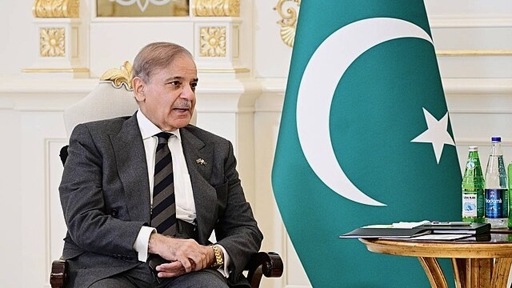Protests have broken out in Pakistan in opposition to the government’s proposed constitutional amendments. It is widely feared that the new amendments may fundamentally change the judicial structure of the country along with establishing the supremacy of the country’s armed forces in the political system.
The draft of the 27th constitutional amendment bill was finalized on Monday, days after it was presented by the government headed by Prime Minister Shehbaz Sharif on Saturday, November 8, to the Senate.
The drafting process did not involve any major opposition parties or any other significant stakeholders, inciting angry reactions.
Proposed changes
According to the draft bill, apart from some minor changes elsewhere, key amendments will be made to article 200, 243, and 248 of the constitution. It will also add a new chapter to the constitution related to the establishment of a Federal Constitutional Court (FCC).
The proposed FCC will have jurisdiction over constitutional disputes between the governments and issues related to fundamental rights. Currently such matters are heard by the country’s Supreme Court.
The judges to the FCC will be appointed by the parliament with equal representation from each province.
The 27th amendment also gives the president more powers to transfer High Court judges.
The proposed amendment rewrites article 243 of the constitution, creating a new post called the Chief of Defense Forces (CDF) and abolishes the earlier post of Chairman of the Joint Chiefs of Staff Committee (CJCSC). The Army chief will now be the head of all armed forces or the CDF.
The officers of the armed forces, who would be promoted to “five-star ranks” will be able to retain their ranks and privileges for life and will have similar immunities enjoyed by the president of the country.
Similar immunity will be provided to the president of the country with amendments in article 248.
Consolidates the control of armed forces
Pakistan has a long history of military coups against civilian governments. For a large part of its over seven decades history the army has directly ruled the country. Though currently an elected government is in power, it is widely speculated that last year’s elections were manipulated to insure the armed force’s indirect control over the civilian administration.
The opposition has claimed that the amendment will further tilt the balance of power in favor of the country’s armed forces, legalizing it and further weakening civilian control.
A coalition led by the main opposition Pakistan Tehreek-e-Insaf (PTI) had called for the nationwide demonstration against the 27th amendment on Sunday, calling it an assault on democracy.
PTI has objected to changes in the judicial structure as well as the impunity granted to top army officials and the president, calling it an attempt to shield the guilty, a dangerous move harming prospects of civilian supremacy and a “coup in disguise”.
Attempts to impose colonial style of governance
“We are witnessing attempts to impose a colonial style of governance in Pakistan. The 27th amendment is an acceleration of this process,” said Ammar Ali Jan, leader of the left-wing Haqooq-e-Khalq Party (HKP), in a post on X.
He called for more protests in the coming days claiming “it’s time to fight back,” to save democratic spaces.
Reacting to the move, the Human Rights Commission of Pakistan (HRCP) questioned the intention of the government in advancing the amendments in such a haste and without proper consultation with stakeholders.
The reported content of the 27th amendment “has alarmed constitutionalists, the legal fraternity, human rights defenders and many others who believe in the independence of the judiciary and tenets of civilian supremacy in democracy,” HRCP said in a statement on its X page.
Secretary general of the Awami Workers Party (AWP) Bakhshal Thalho claimed that the proposed amendment “aims to create more centralization and authoritarianism” and called for a united and organized movement of the working classes against such moves.
Radical restructuring
Several retired judges and lawyers in Pakistan urged the chief justice of the country to summon a full court meeting to discuss the 27th constitutional amendment bill. According to the letter to Chief Justice Yahya Afridi, they claimed that it is an attempt at the “radical restructuring” of the country’s judicial system. They cautioned that if not resisted, the proposed amendments may permanently make the Supreme court of the country a subordinate court.
A petition was also filed in the country’s Supreme Court on Friday challenging the proposed amendments. The petition urged the court to declare its original justification as the basic structure of the constitution beyond any possibility of amendment.
Despite strong opposition, last year the Sharif government rushed the 26th amendment act in a similar manner which had increased the control of the presidency over the country’s judiciary. The idea of a FCC was first floated during that amendment and later dropped.
The post Protests erupt in Pakistan against expansion of military powers appeared first on Peoples Dispatch.
From Peoples Dispatch via this RSS feed


